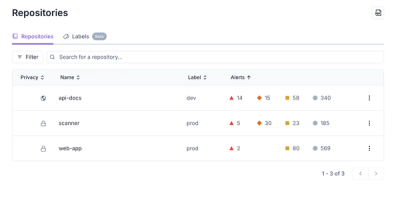
Product
Redesigned Repositories Page: A Faster Way to Prioritize Security Risk
Our redesigned Repositories page adds alert severity, filtering, and tabs for faster triage and clearer insights across all your projects.
Checkout official documentation from Mailjet Node v3 Github.
npm install mailjet-js
At API level it is compatible with v3 client, but it includes following changes
Node 16.x aboveThis library is using vm2 through nested dependencies, bundling this library
may give you this error
Error: ENOENT: no such file or directory, open '/home/node/app/lib/contextify.js'
at Object.openSync (node:fs:585:3)
at Object.readFileSync (node:fs:453:35)
at loadAndCompileScript (/home/node/app/lib/server.js:576:35)
at /home/node/app/lib/server.js:579:14703 {
errno: -2,
syscall: 'open',
code: 'ENOENT',
path: '/home/node/app/lib/contextify.js'
}
Simple solution to this problem is to mark vm2 an external dependency. For this
you can use
esbuildwebpackFAQs
Mailjet NodeJS API client
The npm package mailjet-js receives a total of 0 weekly downloads. As such, mailjet-js popularity was classified as not popular.
We found that mailjet-js demonstrated a not healthy version release cadence and project activity because the last version was released a year ago. It has 1 open source maintainer collaborating on the project.
Did you know?

Socket for GitHub automatically highlights issues in each pull request and monitors the health of all your open source dependencies. Discover the contents of your packages and block harmful activity before you install or update your dependencies.

Product
Our redesigned Repositories page adds alert severity, filtering, and tabs for faster triage and clearer insights across all your projects.

Security News
Multiple deserialization flaws in PyTorch Lightning could allow remote code execution when loading untrusted model files, affecting versions up to 2.4.0.

Security News
NVD now marks all pre-2018 CVEs as "Deferred," signaling it will no longer enrich older vulnerabilities, further eroding trust in its data.